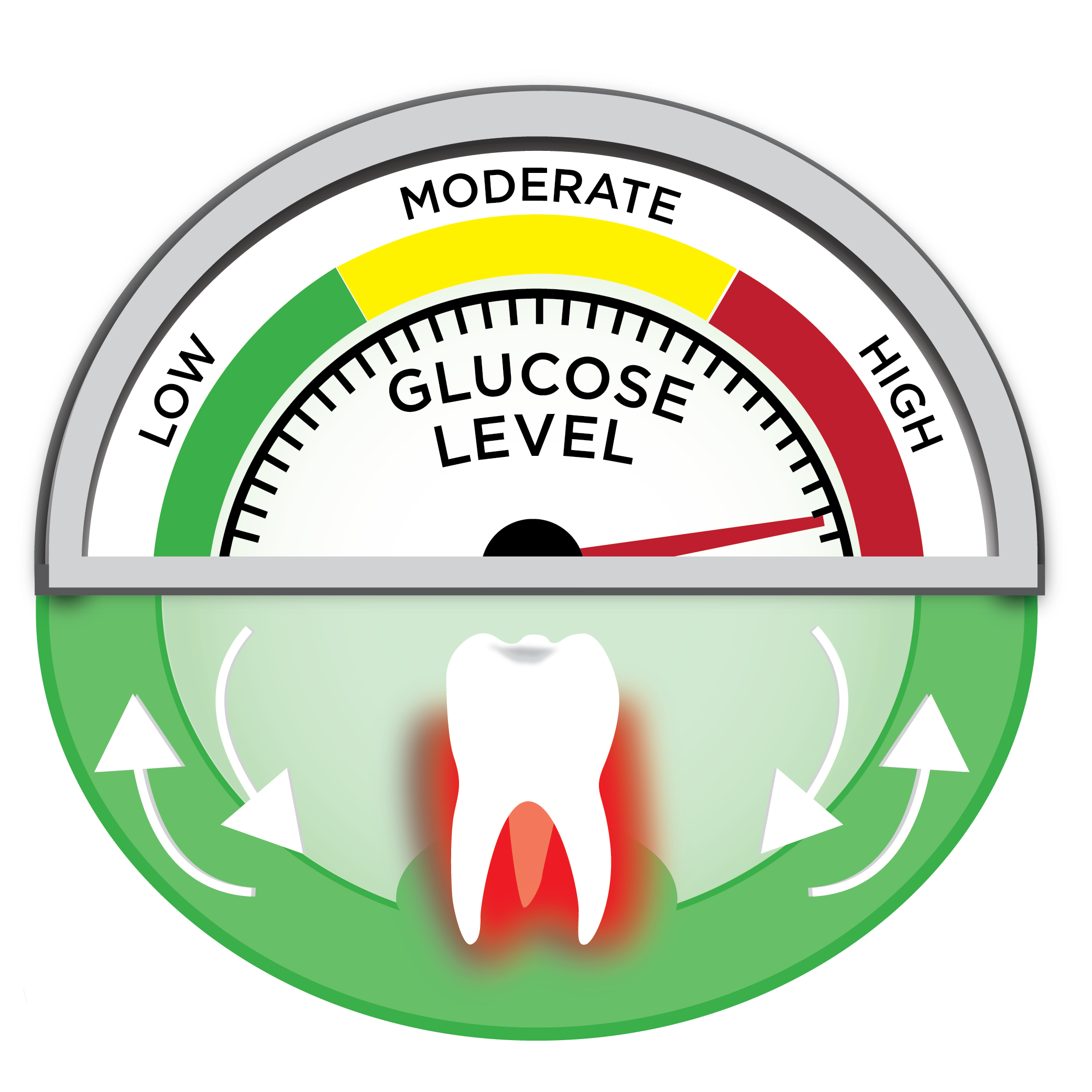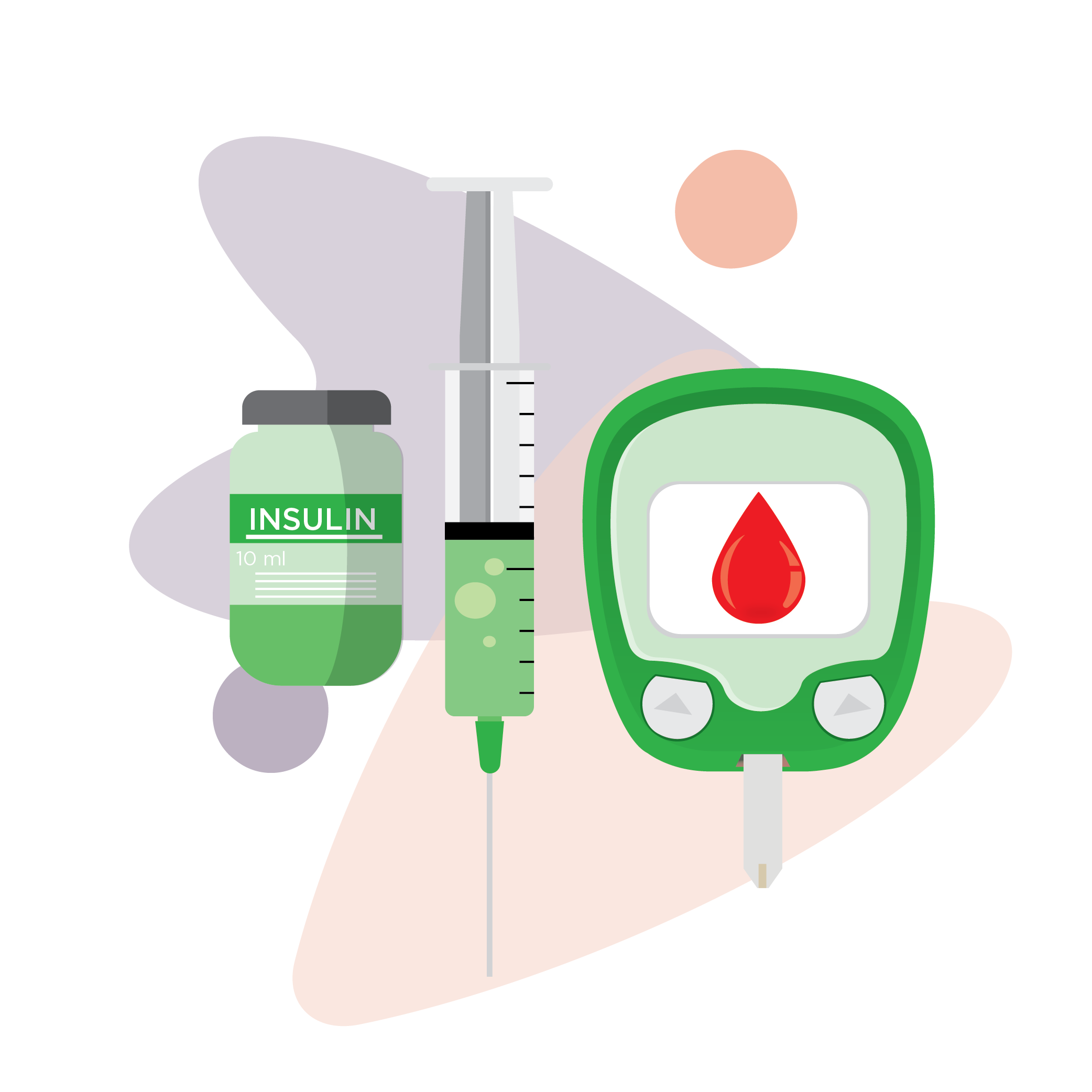Did you know that those who have gum (periodontal) disease are at greater risk for diabetes? The reverse is also true. Gum disease is a risk factor for developing type 2 diabetes. This is a prominent example of the ways our oral and overall health are connected, with each having a large impact on the other.

Why are these two conditions connected in this way?
As you may know, diabetes is when the body’s insulin production is impaired, which causes a person’s blood sugar level to be high. Diabetes reduces the body’s ability to fight infections. Because of this, diabetics are at higher risk for developing infections, including gum disease.
In the reverse case, gum disease is an inflammation of the gums and bone around the teeth. If left untreated, teeth may be lost and inflammation can spread throughout the body. Inflammatory diseases such as gum disease can make it hard to control blood sugar levels and therefore hard to control diabetes. At the same time, if your diabetes is uncontrolled, then managing and healing from gum disease is difficult.
An estimated 37.3 million Americans have diabetes, and there is a national concern over the number of new cases each year.

Diabetes’ impacts to oral health can also include:
- Tooth decay and loss
- Diminished flow of saliva
- Burning sensation of the mouth or tongue
- Oral infections
- A change in the way the teeth fit together
- Impaired taste
If our mouth is not healthy, we are not healthy. This is why it is so important to consider the health of your teeth and gums when taking a look at your overall health. For diabetics in particular, it is extremely important to visit your dental office regularly (though everyone benefits from regular preventive care!)
To keep your mouth and your entire body in its best condition, maintain a strong oral health routine, including the key habits of brushing teeth twice a day with fluoridated toothpaste and flossing once per day.
This information in this post is for general educational purposes only and does not warrant or represent any information as related to health as specifically appropriate for you. It is not intended to be medical advice or replace the relationship that you have with your health care providers. You should always seek medical advice on any diagnosis or treatment from a qualified health care provider. The information is provided “as is” without any representations or warranties, express or implied.
Subscribe now
Your address and personal information will be safely stored in our database. We do not share or sell this information with anyone. You can unsubscribe to this subscription at any time.





